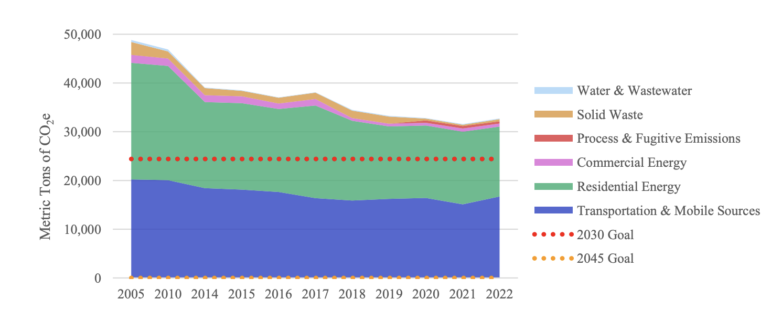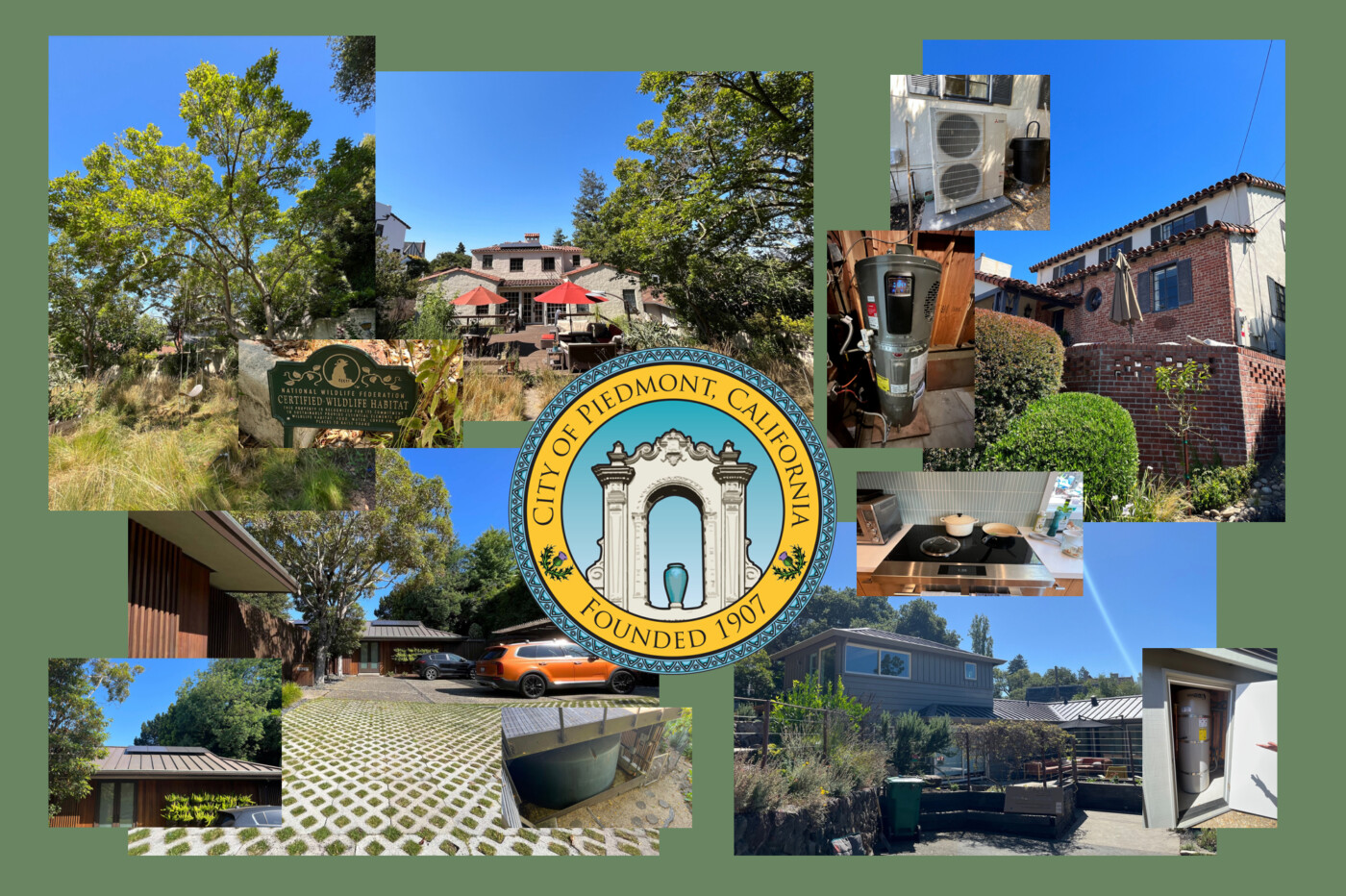Climate Action Fellow Alyssa Romea told city council members at the July 1 council meeting that based on current projections, Piedmont was not on track to meet its 2030 emissions reduction goal. Her report highlighted two pathways that the city could use to get back on track — increasing electric vehicle (EV) adoption and reducing vehicle mileage overall as well as working to decarbonize buildings — moving to full electrification of new and existing buildings.
In 2018 the council adopted the Piedmont Climate Action Plan (CAP) 2.0. Following that, in 2023, the Council unanimously adopted updated climate action goals to reduce in-territory greenhouse gas (GHG) emissions (i.e., emissions occurring within city limits) 50% from a 2005 baseline level by the year 2030; and achieve carbon neutrality no later than 2045. Every year, Piedmont’s progress toward achieving its climate goals is measured and summarized in a GHG emissions inventory.
The report on the 2022 Greenhouse Gas Emissions Inventory found that although citywide emissions are 33.0% below 2005 levels, in 2022 they started to creep back up and were 3.62% higher than in 2021.
This increase can be traced to rising emissions in five subsectors: bus travel, commercial vehicle travel, personal vehicle travel, residential electricity, and solid waste. Personal vehicle travel was the largest contributor, as it generated 66.9% of the overall increase. This is likely due to a continued return to pre-pandemic activity, as this matches a countywide trend of travel emissions rising 25% in 2021, and 6% in 2022.
2022 Greenhouse Gas Emissions Inventory report, July 1, 2024

The report said the municipal activities represented about 3% of total emissions in the city. (A 10.4% increase from 2021, though mainly because staff added greater detail to the methodology.) Like previous years, the highest emitting sectors were transportation-related municipal activities (87.0% of the total), followed by solid waste (7.59%), buildings and facilities (5.20%), and process and fugitive emissions (<1%).
Silver linings
The report wasn’t all bad news. Romea shared some datapoints that showed residents were changing some behaviors. For example, 951 homes in Piedmont have solar or battery systems installed, the city has distributed $40,000 in electrification rebates so far, and 24.7% of registered vehicles in Piedmont are electric or hybrid.
In 2023, the Institute for Local Government awarded the City of Piedmont with the Vanguard Award, an award given to one jurisdiction each year and, for Piedmont, recognizes the overall strides made in city and government emissions reductions, climate action planning, and implementation of sustainability best practices.
In 2024 the city honored four homeowners with its first Sustainability Awards, completed an urban forest inventory, held community events such as the Arbor and Earth Day celebrations, improved bike and pedestrian safety with new street bulb-outs, and expanded the induction cooktop lending program.
In addition to school and community outreach efforts, councilmembers suggested the city work with local realtors to help share information about the city’s sustainability goals and electrification efforts with new homeowners.

Your story leaves out the biggest silver lining – natural gas use, predominantly from residential space and water heating, declined 3% from 2021 to 2022, a period of temperature extremes. This is conformation that mandated home energy efficiency improvements (REACH codes) worked. The REACH codes are no longer enforced by the Planning Department due to federal law however a looming BAAQMD mandate to reduce natural gas emissions (stoves excluded) could be the basis for new code changes to reduce natural gas use in Piedmont. The forthcoming electrification strategy must consider mandates or much bigger incentives if it is to achieve the GHG reduction 2030 targets, let alone 2050. And maybe the City could get another Vanguard Award – it did for the REACH codes.
Not mentioned in the staff report or by council members is that housing growth contemplated by the 6th Housing Element will add 7000 Metric tons CO2 by 2033 – that cancels out a lot of Piedmont’s GHG reduction.